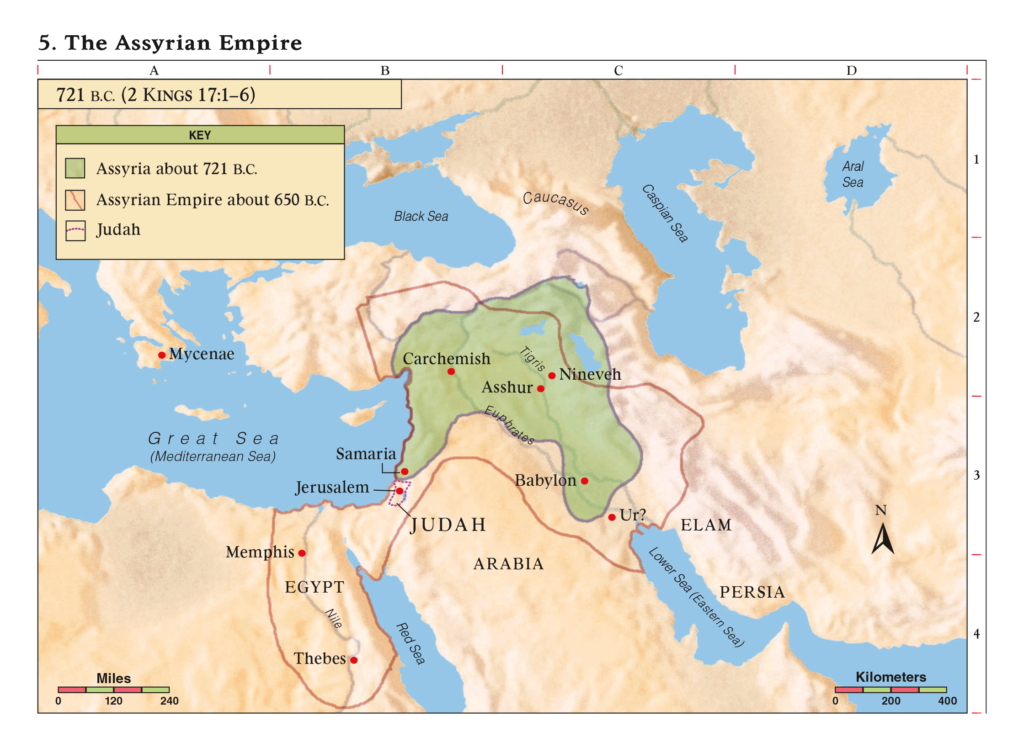



Since the conquest of Joshua, even if the nation had suffered defeats and setbacks, Israel had remained firmly rooted in their land. The defeat and exile of the Northern Kingdom in 722 BCE was a devastating and unprecedented event. After three years, Assyria conquered Samaria, deported its inhabitants, and repopulated the city with captives from the northern lands ( II Kings 17:4-6). Tiglath Pileser’s son, Shalmaneser V (reigned 727-722 BCE), eventually besieged Israel’s capital city, Samaria, in response to Hosea’s rebellion. The Judean kingdom also regarded the voracious Assyrians as an abiding threat, in spite of their alliance and substantial bribe, and Ahaz took precautions in case the Assyrians attacked ( II Kings 16:17-18). Nevertheless, Tiglath Pileser eventually dismantled large portions of the Israelite kingdom, greedily taking parts of the Galilee ( II Kings 15:29) and Transjordan ( I Chron. His military success affected both the kings of Israel and Judah: Menachem ben Gadi of Israel offered tribute to keep him at bay ( II Kings 15:19-20), while Ahaz of Judah bribed him to keep Judah’s other enemies (Israel and Aram) at bay ( II Kings 16:7-8). The biblical account first mentions the Neo-Assyrian empire during the reign of Tiglath Pileser III (745-727 BCE), referred to also as Pul ( II Kings 15:19). Revava - The Riva Koschitzky z"l Torah Enrichment Program This repentance, however, did not last beyond 745 b.c., when Nineveh became the leading military power in the Near East.Publications: Philosophy and Current Affairs.Show - Main navigation Hide - Main navigation


 0 kommentar(er)
0 kommentar(er)
